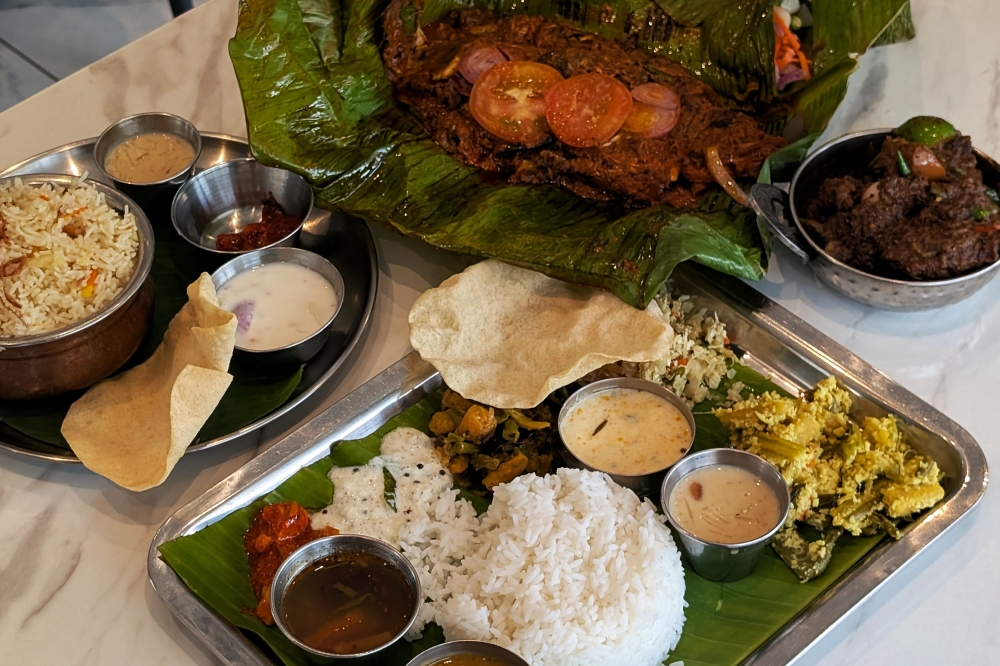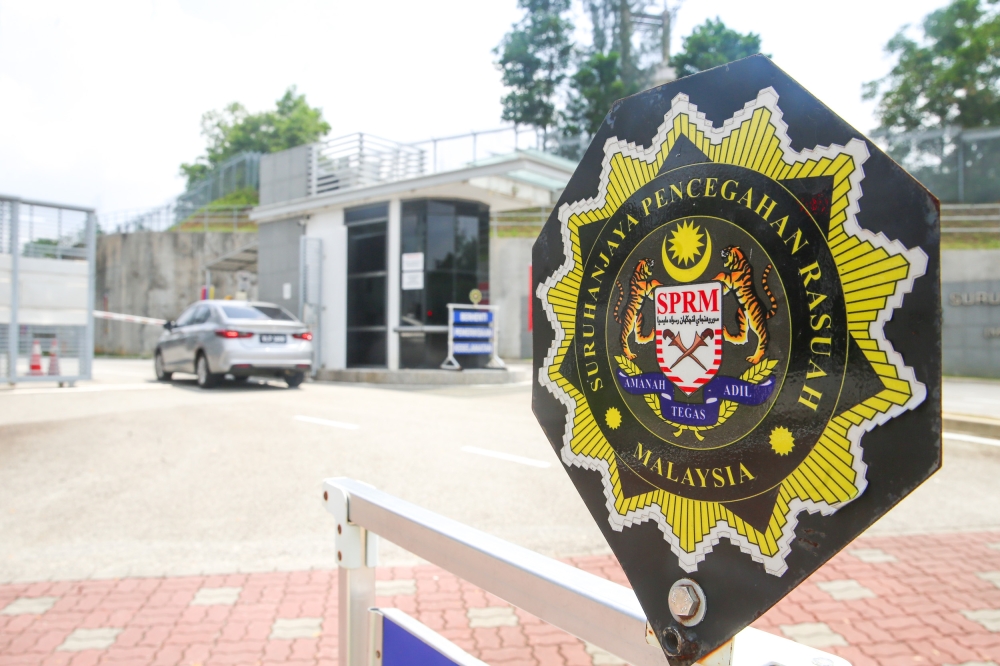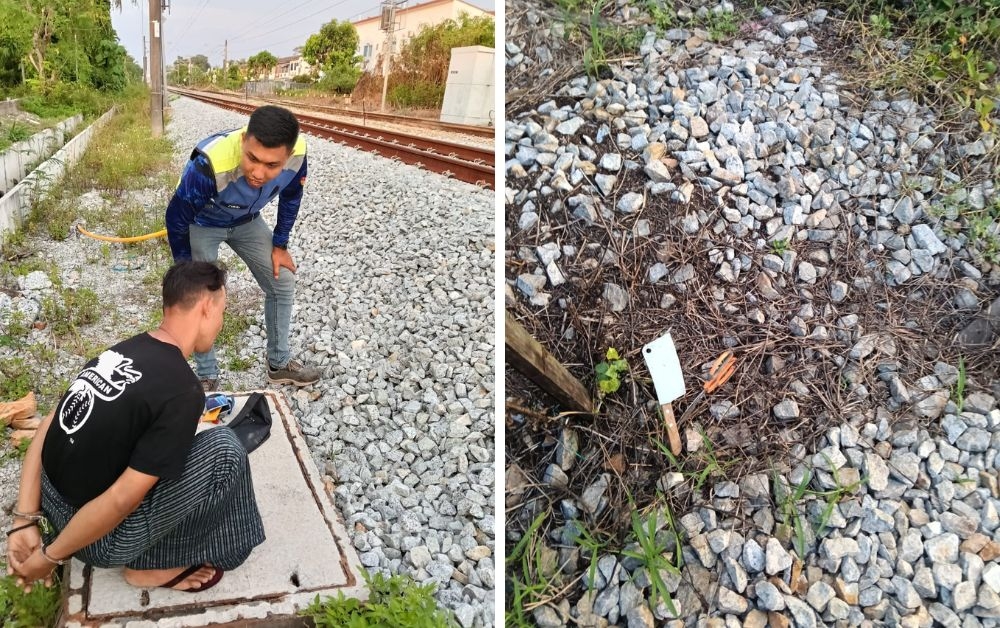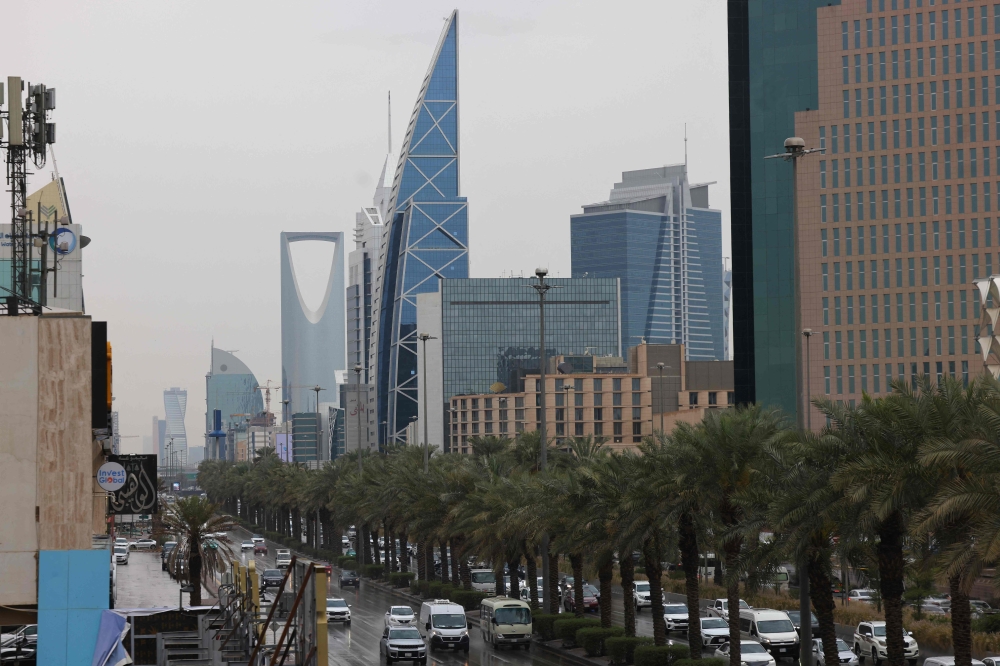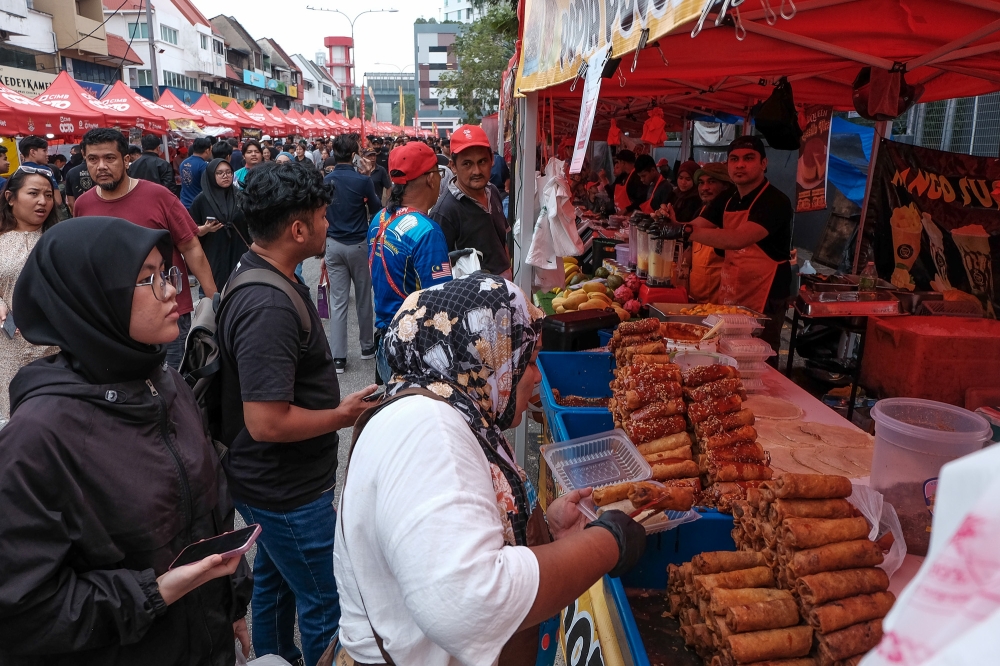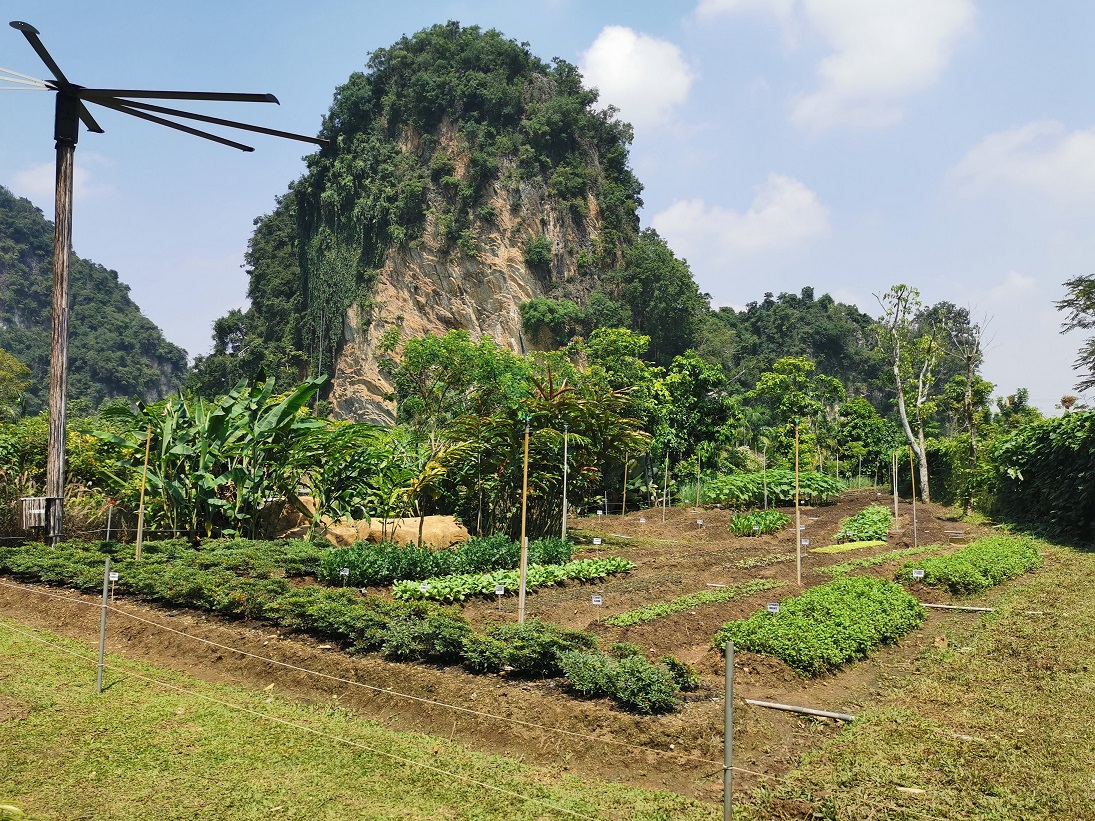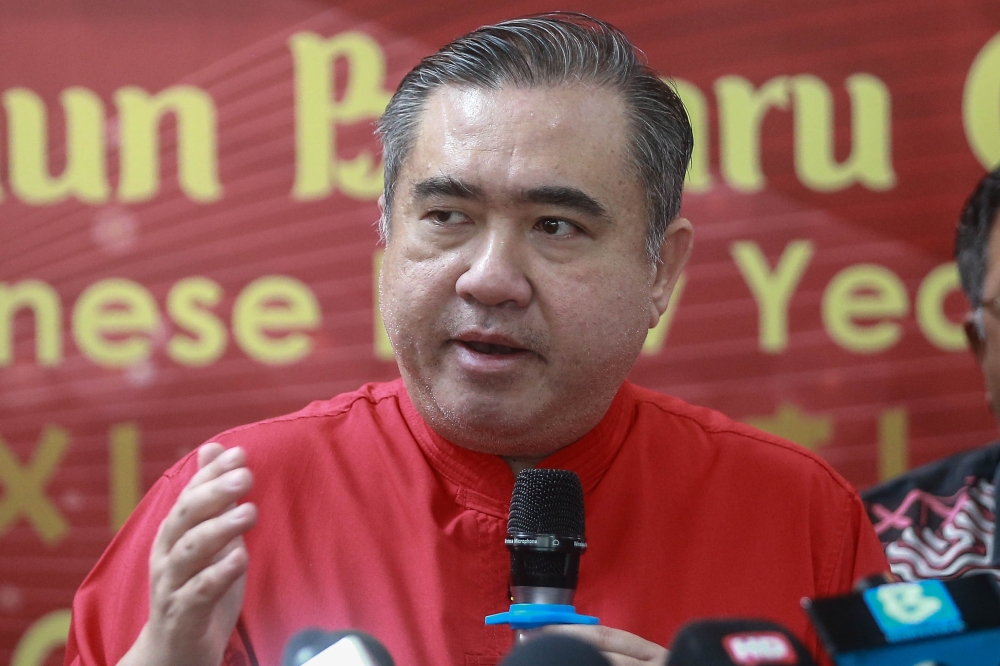PETALING JAYA, June 11 — As a child, The Banjaran Hotsprings Retreat head chef Lee Choon Boon grew up in a wholesome environment, growing their own fruit and vegetables as well as having their own chicken farm.
Helping his family harvest the fruits of their labour along remains a childhood memory that Lee looks back on with much fondness.
“It was considered to be one of our greatest entertainments at a time without the internet,” he told Malay Mail.
In the process, he picked up pearls of wisdom from his elders, from using ingredients that respect the earth to the importance of being self-sufficient.
“Growing our own food has certainly brought us to cook with love.
“As we begin to appreciate all that goes into growing the food that sustains us and learning how to preserve our harvest,” he added.
Today, that philosophy is very much alive, culminating in not one but three organic gardens at The Banjaran.
The Organic Garden and Chef Boon’s Garden, named after Lee, grow common greens such as cucumber, carrots and leafy vegetables while the Herbal Garden produces basil, rosemary and oregano.
Spanning almost 10,000 square feet, the three gardens are part of a 20-acre undeveloped land that Sunway City Ipoh repurposed for food and agriculture last year.
Boasting more than 40 types of vegetables and herbs, the organic farm is nourished by fresh water from Ipoh’s mountains that flow into a natural lake within the retreat.
There are 15 organic farmers whose daily responsibilities include weeding, watering, fertilising, pruning, harvesting, collecting food debris for compost and producing their own fertiliser.
The farmers focus on cultivating produce that thrive according to their respective seasons using crop rotation which naturally enriches the soil.
On top of yielding more nutritious produce, organic farming practices ensure long-term land sustainability that benefits the environment.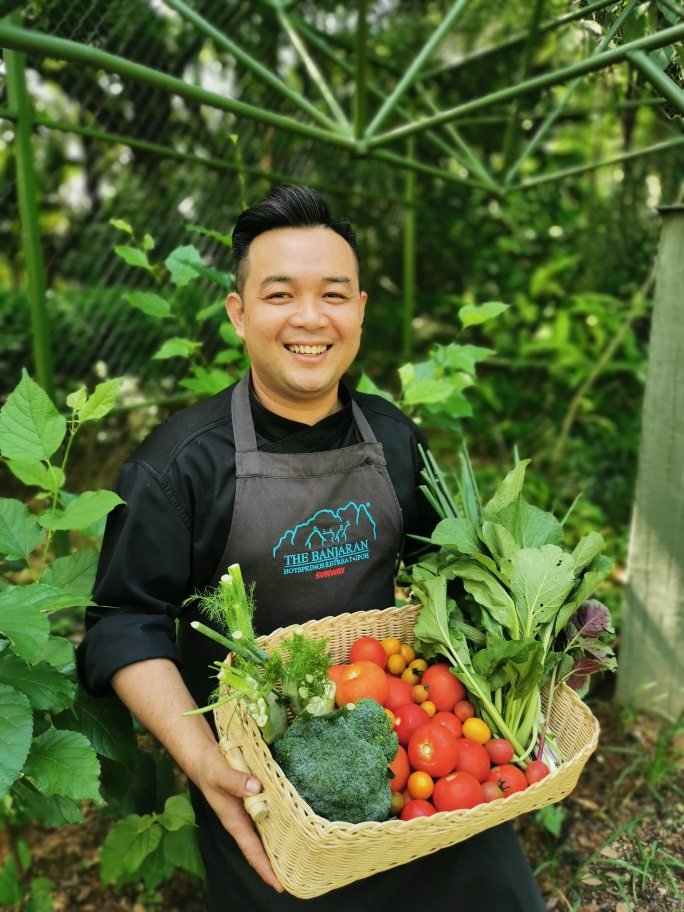
“Sustainable eating also encourages us to not just consume nutritious food but to also consume mindfully — by consuming only what we need for daily sustenance reduces food wastages,” Lee said.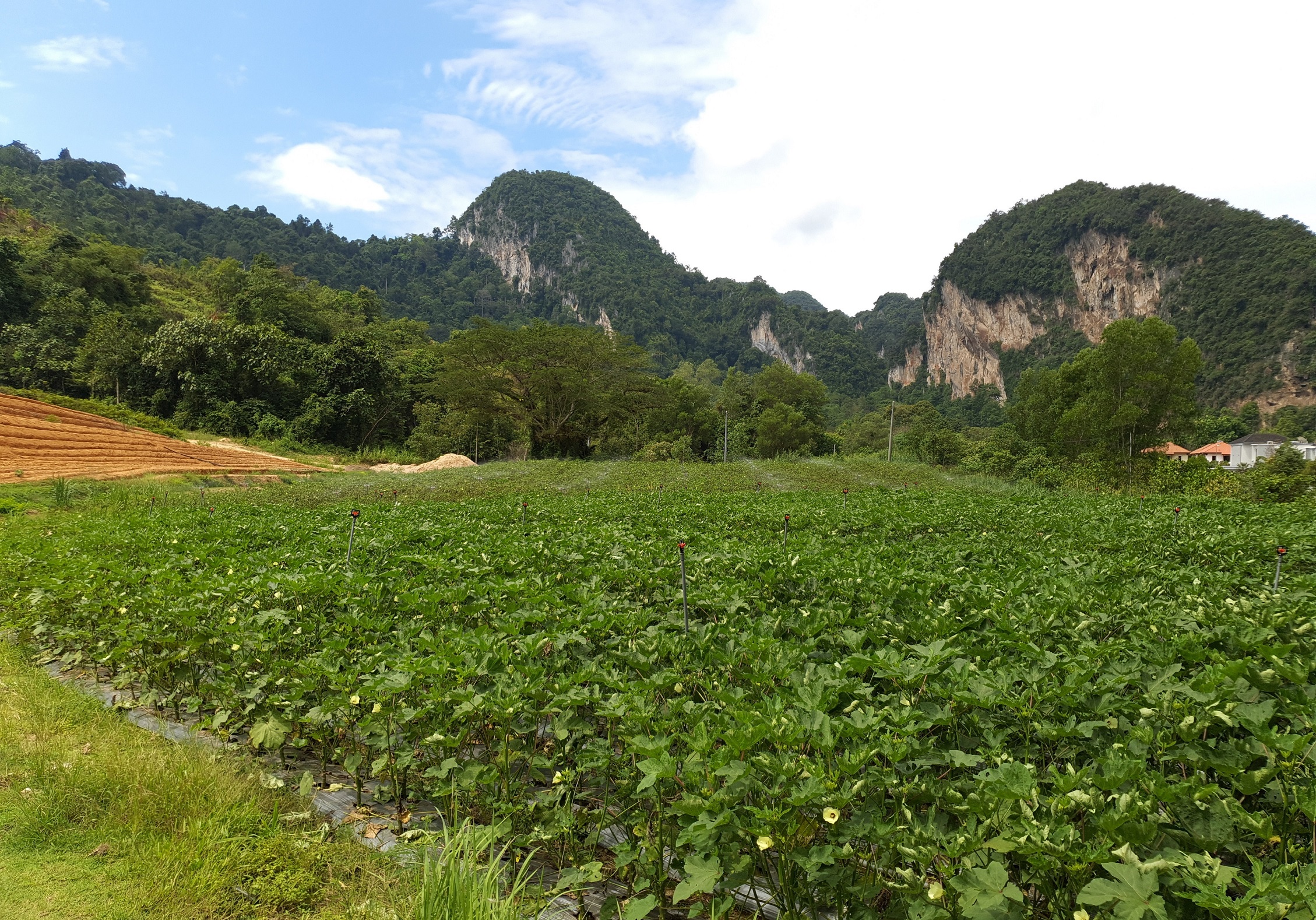
From an operations standpoint, these gardens have helped the retreat reduce its food waste and carbon footprint by minimising greenhouse gas emissions.
For Lee, sustainable eating is about choosing food that’s healthy for our bodies and our environment, to enhance quality of life and society as a whole.
“As a parent, one of the most important reasons for sustainable eating practice is that it encourages us to produce healthful food without compromising our future generation,” he said.
The next time guests check into The Banjaran for some much-needed serenity away from the hustle and bustle of modern life, they will be dining on fresh organic produce from these gardens that were the brainchild of Sunway Group founder and chairman Tan Sri Dr Jeffrey Cheah.
“Farm-to-table dining reminds us about the things that really matter – our inseparable relationship with nature, our infinite capacity to nurture, our imperative to live healthy and our inherent responsibility to the stewardship of the planet,” said Cheah, who is a fan of farm-to-table dining.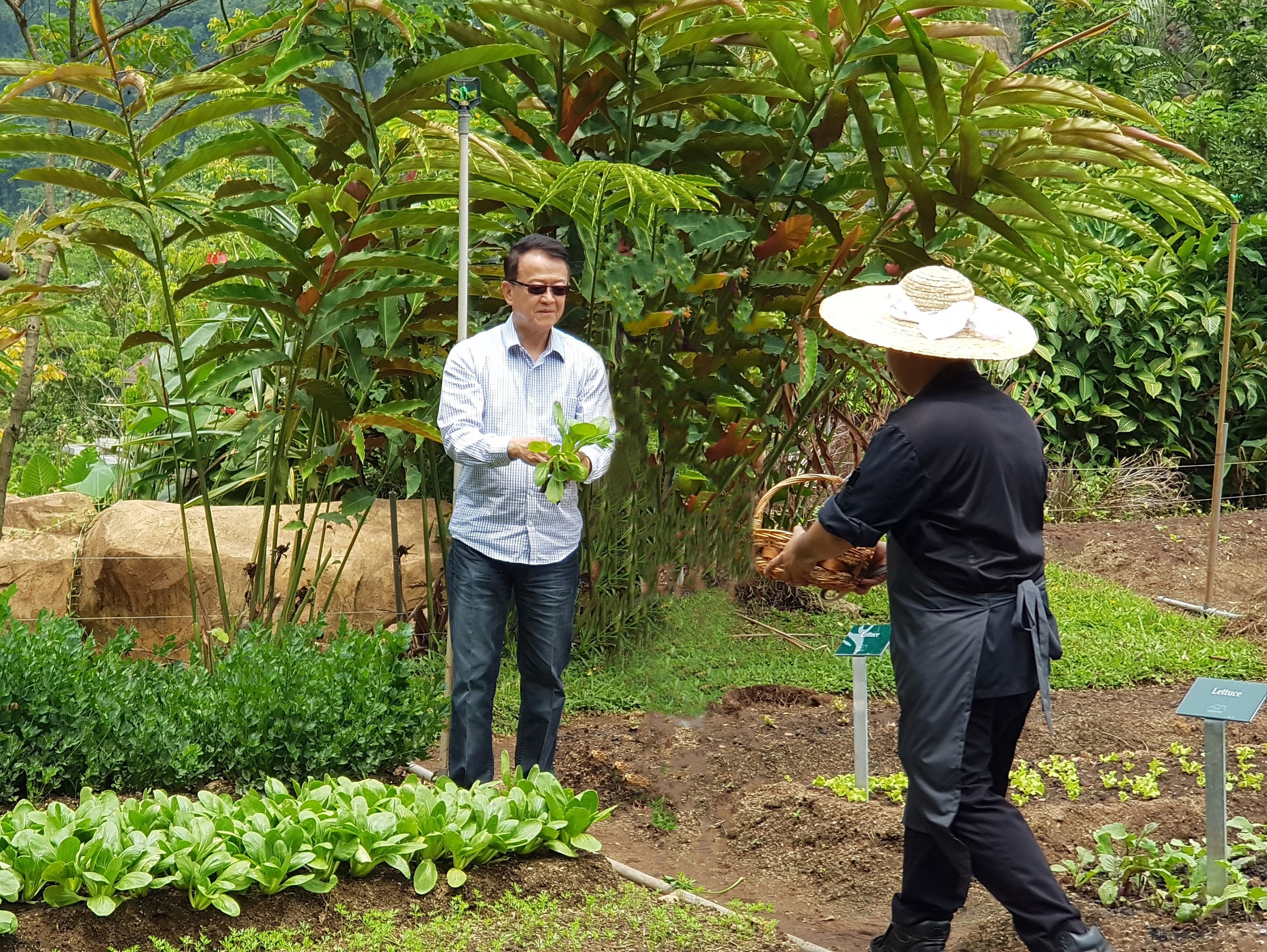
The initiative also falls in line with Sunway’s commitment to the 17 United Nations Sustainable Development Goals which includes food security, improving nutrition, promoting sustainable agriculture, responsible consumption and reproduction.
Though farm-to-table dining is relatively new in Malaysia, Lee says it’s a growing social movement that reflects the growing awareness of healthier eating that takes the environment into consideration.
With the aim of encouraging sustainable living and promoting farm-to-table dining, the popular wellness retreat now incorporates produce from its organic gardens that are harvested at its peak for guests and restaurant patrons to enjoy maximum nutritional benefits.
There’s freshly squeezed organic vegetable juice at Pomelo’s breakfast counter while Jeff’s Cellar features a course of “The Banjaran Organic Garden” in its signature menu.
For fans of the king of fruits, a seasonal durian buffet package awaits in February and July courtesy of The Banjaran’s organic farm.
“By stocking our kitchens with produce sourced from local farms and our own organic gardens, we can practise more sustainable living habits,” Lee said.
During the Covid-19 pandemic and movement control order, the farm also delivered more than 200kg of fresh organic produce that benefitted more than 6,000 frontliners and patients at Ipoh’s Raja Permaisuri Bainun Hospital.
Nestled in a 22.7-acre valley, The Banjaran is cradled by lush tropical rainforest, geothermal hot springs, natural caves, cascading waterfalls and magical 260-million-year-old Paleozoic limestone hills.
Known for its villa stays, wellness treatments and dining, the popular retreat which is located just a two-hour drive away from Kuala Lumpur, made a name in the hospitality world for preserving its surrounding natural environment and eco-friendly practices.
But part of being this close to nature includes regular interludes with the gardens’ hungry “neighbours.”
Lee and his team found themselves losing crops to monkeys from the nearby rainforest in the early days of the farm.
“The monkeys would steal our produce even before they could ripen.
“We have since installed fences around our gardens to keep the monkeys out,” he said.



